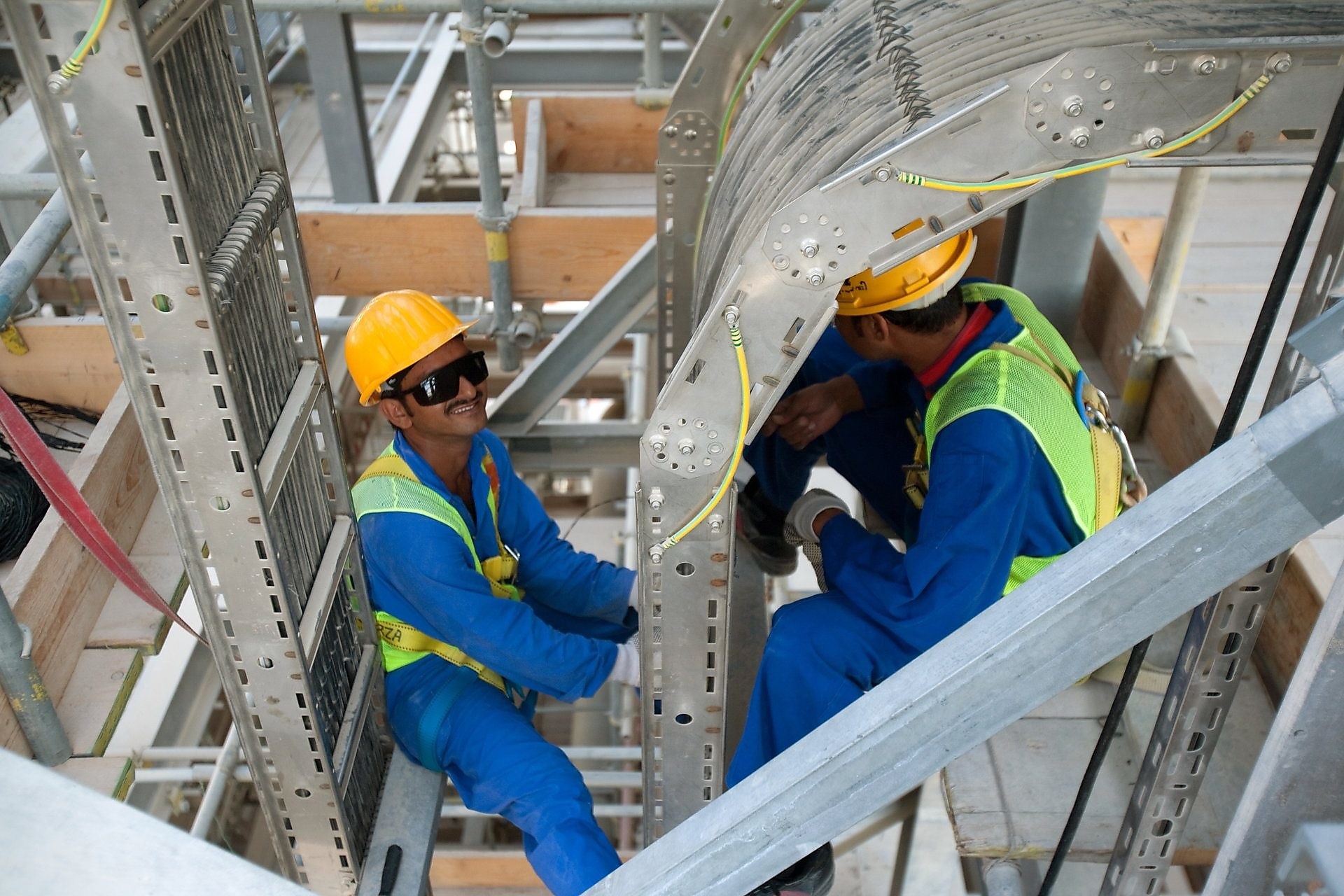Thousands of workers from more than 50 countries built the Pearl GTL (gas-to-liquids) plant. It was one of the world’s largest and most complex construction sites. Yet through teamwork and an imaginative approach to training that broke through language barriers, the project set a safety record.
Safety through teamwork
To get the message across, Shell turned to the international language of sport. Shell invited a famous Indian cricketer, Kapil Dev, to talk to workers on one of the Shell Safety Days that take place twice a year.
Kapil Dev was a boyhood hero for many of the workers, most of whom came from cricket-playing nations. Thousands came to see him talk about safety.
“It’s exactly the same as in a cricket team: one weak person can affect the whole team,” Kapil Dev told workers at Safety Day in January 2010. “Listening to your supervisor is the same as listening to your captain in cricket.”
Safety training programmes
To overcome communication barriers, on-site training courses were given in seven languages including Hindi, Arabic, Tagalog and Thai. By early 2011 workers had followed some 367,500 training sessions in practical subjects such as working at heights.
All over the construction site posters of “Pearly” — a mascot shaped like a giant pearl with arms and legs that was developed to suit different cultures — reminded workers of safety rules.
In 2008 Shell launched a leadership training course for supervisors on the site to learn how to work safely and encourage others to do so. More than 5,000 completed the nine-day course which was certified by the Institute of Leadership Management in London.
”It's special for them as well, having a certificate they can carry with them after the project,” says Sheikh Thani Al-Thani, Deputy General Manager Pearl GTL.

Road safety
Employees ran a high risk of being injured in traffic accidents. In part this was due to harsh desert weather with dust clouds in summer and speeding drivers on the roads.
But by the peak of construction in 2010, Pearl GTL had transported people and equipment over almost 300 million kilometres without serious injury.
By driving staff from Doha to the industrial zone of Ras Laffan by bus, Shell saved an estimated 40 million kilometres of potential travel in passenger cars and reduced risk by lowering the number of vehicles on the road.
Monitoring speed
The maximum speed at the plant site is 30 kilometres an hour. Shell introduced an in-vehicle monitoring system in 2006 that detects speeding, abrupt breaking or when a car is idling. Drivers cannot start cars without inserting their personal monitoring tags into a slot next to the ignition.
The chip sounds an alarm if drivers break safe-driving rules. If they persist they risk a warning, or at worst losing their job. It is in use in all of Shell’s 5,000 cars, pickup trucks and lorries in Qatar.
At first contractors were against it. When they realised it could lower fuel use — in one reported case by around 10% — reduce the number of breakdowns, and lower tyre wear, they were happy to do so, and even introduced it on their other vehicles.
Shell also introduced an initiative to encourage the use of seat belts among students in Qatar not connected to Pearl. Some 1,500 students participate each year.
Source : Link
Pasargad Energy Development Co. (PEDC) is an independent energy company based in Iran. PEDC is an integrated energy company whose activities span the entire value chain including exploration, production, refining, petrochemicals marketing, power generation & renewables as well as new high-tech venture capitalizing. Our headquarter is located in Tehran. PEDC is present across the Iranian continental shelf and international market through its subsidiaries. We create value for our shareholders through active investment, high-level monitoring of our projects, building world-class partnership and managing our risks effectively and making balanced portfolio. Meantime, we contribute to the sustainable development of the energy sector and communities in our country. PEDC’s competitiveness relies upon our values-based performance culture, with a strong commitment to transparency, cooperation and continuous operational improvement. As a wholly owned subsidiary of the Pasargad Financial Group, with Pasargad Bank being a distinctive shareholder, we owe our success to our experience, management knowledge and strong local/international partnerships since 2008. PEDC is committed to maintaining sustainability and being recognized as the strategic partner of choice in Iran’s energy and petrochemical sector.